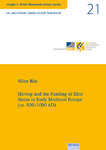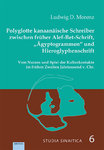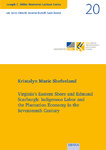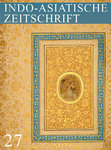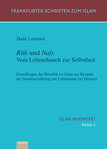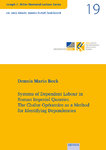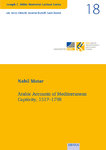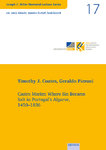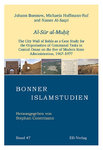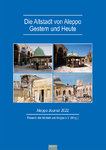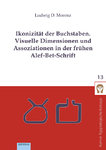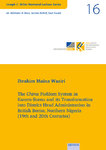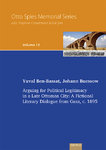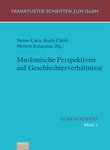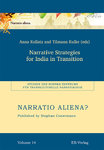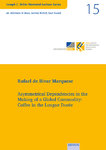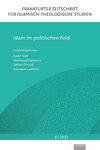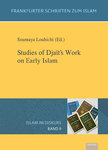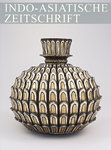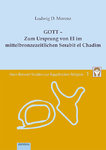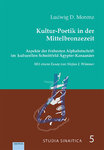Verlag für Wissenschaft und Praxis
- ISLAMWISSENSCHAFT
- ISLAMISCHE STUDIEN
- JOSEPH C. MILLER MEMORIAL LECTURES SERIES
- ASIENWISSENSCHAFT
- ARCHÄOLOGIE ALS KULTURWISSENSCHAFT
- RELIGIONSWISSENSCHAFT
- RELIGIONSPÄDAGOGIK
- GESELLSCHAFT UND KIRCHE
- KIRCHE UND GEMEINDE
- GESUNDHEIT UND KRANKHEIT
- KINDERGARTENPÄDAGOGIK
- OPEN ACCESS
- Neuerscheinungen
- In Vorbereitung
- News
- E-Books
- Einzelkataloge
Categories ASIENWISSENSCHAFT Reihe zur japanischen Literatur und Kultur Band 15: Japanische Literatur nach Fukushima
Band 15: Japanische Literatur nach Fukushima
Artikel-Nr.: ISBN 978-3-86893-134-1
Auf Lager
innerhalb 3 Tagen lieferbar
Preis inkl. MwSt.
501 Seiten, Hardcover
17 x 24 cm, 2021
Die Studie "Japanische Literatur nach Fukushima. Sieben Exkursionen" (2021) erörtert die Texte zahlreicher Autoren und Autorinnen der zeitgenössischen japanischen Literatur mit ihren Themen wie Natur und das Nukleare, Atomhavarie und „belastete Atmosphären“, Leben im „toxischen Kontinuum“ sowie „Im Post-Anthropozän: Die Erde ohne uns“.
Unter den Schriftstellern sind bekannte Namen – Tsushima Yûko, Kawakami Hiromi, Tawada Yôko, Kirino Natsuo und Murata Sayaka – aber auch bislang meist nur in Japan gelesene Vertreter der Literaturszene wie Yoshimura Manʼichi, Isaka Kôtarô, Itô Seikô, Kobayashi Erika und Onda Riku. Zudem kommen Schriftsteller aus der von der Dreifachkatastrophe am stärksten betroffenen Region zu Wort, z.B. Genʼyû Sôkyû und Kimura Yûsuke, ebenso wie eine ältere Autorengeneration, die mit ihren literarischen Kommentaren die Machtverhältnisse im „Atom-Staat“ kritisiert und an die Grundlagen eines Demokratieverständnisses erinnert, wie es für die Nachkriegszeit prägend war.
Leitfrage der Textexegesen ist, inwieweit und auf welche Art die literarische Repräsentation von „3.11“ eine – in Abgrenzung zum offiziellen Narrativ der Katastrophe durch Regierung und Medien – alternative oder subversive Deutung der Geschehnisse bietet.
English Abstract
The study Japanische Literatur nach Fukushima. Sieben Exkursionen / Japanese literature after Fukushima. Seven excursions discusses what is called shinsaigo bungaku or 3.11 literature. It covers texts that address key topics such as nature and the nuclear, nuclear catastrophe, “polluted atmospheres”, life in a “toxic continuum” and “the post-anthropocene: the earth without us”. Among the authors discussed are well-known names – Tsushima Yûko, Kawakami Hiromi, Tawada Yôko, Kirino Natsuo and Murata Sayaka – but also representatives of the literary scene who have so far only been read in Japan, such as Yoshimura Manʼichi, Isaka Kôtarô, Itô Seikô, Kobayashi Erika and Onda Riku. Writers from the region hardest hit by the triple disaster, e.g. Genʼyû Sôkyû and Kimura Yûsuke, receive special attention. This also applies to an older generation of authors who, with their literary commentaries, criticize the balance of power in the “nuclear state” (Jungk) and recall the fundamentals of an understanding of democracy that shaped the post-war era.
The key question of the study is to what extent and in what way literary representations of “3.11” offer an alternative or subversive interpretation of the events – as opposed to the narrative of the catastrophe by the government and the media. Quite a few contributions to “Fukushima” refer to a tradition of literary commentary on contemporary history: In these cases, the question must be asked how authors understand the connections between literature and politics. Some texts showed with remarkable clarity how catastrophes can implement new normative structures and biopolitical orders – especially those that open up future perspectives in the form of mirai shôsetsu.
Literature thus shows itself as a linguistic antidote to PR and rhetorics of authority. Other Post-Fukushima adaptations correspond to the state directed mandate of an artistic crisis intervention and seek harmony with the official framing; they favor the path of “consensus art” in order to avoid confronting changes in social reality, e.g. the consequences of a nuclear accident. Their authors often focus on the concept of trauma to those affected and the possibility of „healing“, acting in conformity with the system. “Safe narrations” of “Fukushima” transform the events into a state-conforming culture of memory. In this context, the role of literary scholars and Japanologists must also be examined: Are they part of the socio-media entourage that prepares 3.11 and offers globalized, streamlined consensus research? Or do they search for a more complete picture of multidisciplinary, philosophical-political orientation – under aspects such as „post-democracy“ (Crouch), „surveillance capitalism“ (Zuboff), „focusing events“ (Birkland) and „political economy of consent“ (Ribault)?
Zu diesem Produkt empfehlen wir
Kunden, die dieses Produkt gekauft haben, haben auch diese Produkte gekauft
|
|
Diese Kategorie durchsuchen: Reihe zur japanischen Literatur und Kultur



